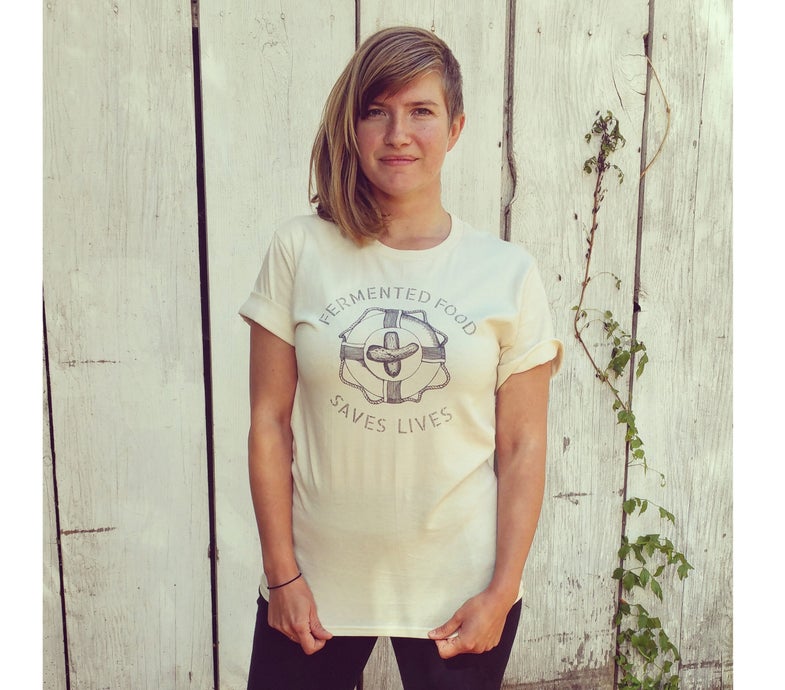What Are You Doing For Thanksgiving?: Tara Whitsitt
We asked a bunch of our favorite people about their holiday plans

Tara Whitsitt is an artist, food activist, and fermentation educator who just completed a two-year project called Fermentation on Wheels. During that time she travelled across the United States in a converted school bus and taught free food and fermentation workshops to communities of all ages and socioeconomic levels. In between going to big cities, Whitsitt worked on farms so she could bring freshly harvested produce to her workshops. Popular Science talked with her about her Thanksgiving plans for this year.
What are you eating and/or fermenting for Thanksgiving?
This will be my first Thanksgiving back home in Eugene, Oregon in two years, so I’m pretty excited. I spend most of my time living in intentional communities, and we make really big Thanksgiving meals with all locally-sourced ingredients.
I bring the ferment with some sauerkraut and ciders. This year I made a sauerkraut with green and red cabbage, carrots, green onion, and watermelon radish. For ciders I let the apples ferment naturally with wild yeast, and just add some cinnamon and nutmeg. I don’t add any inoculators of any sort, like yeast or bacteria. I just let the mixture sit for about a week, and I end up with a light, boozy beverage with around 4 or 5% alcohol content.
Lately I’ve been very into tempeh and miso as well. Tempeh is something that’s kind of hot in vegetarian circles for Thanksgiving. It’s traditionally made from soy, but you can use other legumes and mix it up with grains. I’ve done a tempeh with roasted barley and Jacob’s Cattle beans. Some people also make tempeh with quinoa — you can get pretty creative with grains and legumes. The most recent miso I made was with red lentils, roasted barley, and soy beans.
Fermentation aside, this week I also made some baba ghanoush, and I imagine we’ll make a big butternut squash-apple soup because Oregon’s a great place for squash in the fall. A lot of us are from the South, so we might make Southern-style yams, greens, and hams to go with the turkey. We’re a very food-based, heart-and-spoon community, so we’ll go all out and cook for 48 hours.

Tara Whitsitt teaching a fermentation workshop
Why do you teach fermentation workshops?
Fermentation is an easy process anyone can do at home with very simple tools. You don’t need any heat, you pretty much just need salt and vegetables. Sometimes I’ll teach fermentation classes with starter cultures, like for making sourdough, kombucha, yogurt, or kefir, but I mostly teach vegetable fermentation because it’s so approachable. I like to talk about where our food comes from and the importance of microbes, from the ones in the soil all the way to the ones in the end fermentation product.